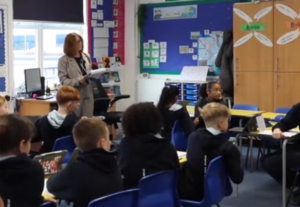01.10.25 On Attention, ‘cognitive endurance’ and reading

In our forthcoming book on the Science of Reading, Colleen Driggs, Erica Woolway and I discuss the importance of attention to reading. Short version: if nothing else, the smartphone, having fractured the attention of millions, has taught us that attention is malleable. This is especially important in reading, which places such intense demands on…



